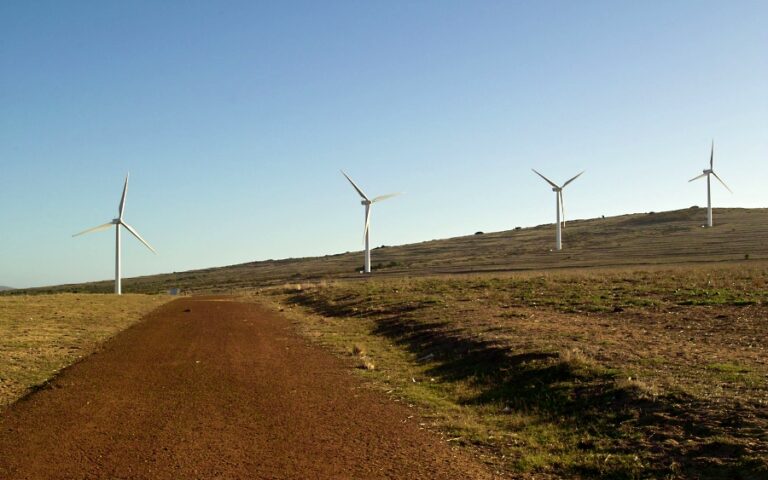Just Share has published a report on the findings of our 2021 South African Asset Manager Climate Risk Survey. The report covers 31 of the country’s largest and/or most prominent asset managers, using both their direct responses to survey questions and publicly available data to assess their approach to climate risk.
For the first time in South Africa, stakeholders like retail investors, pension fund trustees, philanthropic foundations, university endowments, and civil society organisations can assess the extent to which the local asset management community is meeting international best practice standards in integrating climate risk into investment decision-making.
Asset managers have substantial power to influence whether global heating is limited to the 1.5 degrees Celsius mark that must be achieved to limit the most severe impacts of the climate crisis. Asset managers’ portfolios, and their engagement with asset owners and investee companies, can make or break the achievement of low greenhouse gas emissions and climate-resilient development required by the Paris Agreement.
The volume of information published by many asset managers, combined with their extensive marketing campaigns, and the fact that there is no professional body or other entity in South Africa that analyses and verifies claimed responsible investment (RI) credentials, means that it is very difficult to assess whether investment decision-making is supporting a just transition to a low-carbon economy.
The survey therefore sought to investigate the extent to which local asset managers are genuinely integrating climate risk into their investment decisions, using an assessment of three core components of climate risk management:
- governance (including: voluntary initiatives, accountability, incentives, technical knowledge, and the Task Force on Climate-related Financial Disclosure (TCFD));
- stewardship (including: engagement priorities and disclosure, escalation, and voting); and
- integration (including: strategy, policies, scenario analysis, and metrics and targets).
The findings show that, while there are encouraging signs of local asset managers adopting the necessary approaches to successful, effective climate risk integration, relatively few of them demonstrate excellence when assessed against international best practice standards. Those that do align with international best practice do so in some areas, but not in all.
Survey responses also suggest that good practice in climate change integration is not related to the size or asset class focus of the asset manager, nor of its participation in local or international environmental, social and governance (ESG) and RI initiatives. Rather, meaningful climate change integration is directly related to a manager’s commitment to the issue, specifically as measured through the existence of high standards of oversight and accountability at a senior leadership level.
It is in the best interests of South African asset managers, their clients, and other stakeholders, that they keep abreast of rapidly evolving climate change-related issues, and are proactive with respect to adopting current best practices in integrating these into investment decision-making.
Specifically, consistent and comprehensive disclosure, adoption of reporting aligned to the TCFD recommendations, the use of appropriate metrics and setting of ambitious carbon reduction targets (accompanied by pragmatic strategies for achieving them) should no longer be a “nice-to-have” for investors, but a minimum requirement.
Looking ahead, managers should be actively considering how they plan to integrate issues related to human rights, the sustainable development goals and biodiversity into their investment strategies – something which very few of the surveyed managers are currently doing, but which will increasingly be seen as best practice.
Just Share’s aim is for the South African Asset Manager Climate Risk Survey to contribute to a better understanding of the status of climate risk management in the asset management industry, and to assist in identifying areas to enhance climate change-related decision-making.
We have attempted to shine a light on those managers that are leading the way, in the hope that this will spur faster and more coordinated action to align investment decisions with the goals of the Paris Agreement.
Summary of key findings and recommendations
Transparency
South African asset managers are not aligned with global best practice when it comes to transparency that assists stakeholders in assessing their approach to climate risk, and whether it results in real-world outcomes.
Recommendation: Asset managers should publicly disclose: a position and policy on climate change; their engagement priorities, activities, and outcomes; their escalation policy, application and outcomes; a proxy voting policy; and proxy voting results and rationales, preferably in a searchable database and updated as soon as possible after voting.
Integration and active ownership
Many managers surveyed do not appear to focus on climate risk, but rather consider that it is adequately covered by their broader ESG-integration approach.
Recommendation: Asset managers should adopt and disclose an explicit climate change-related integration strategy:
- with outcomes which prioritise systemic climate risk issues over the short-term interests of any individual company; and
- which sets out climate change-related engagement priorities and triggers for escalation, with clear timelines and expectations of investee companies aligned with the goals of the Paris Agreement.
Incentives
Only three surveyed managers report having explicit climate change-related incentives. Appropriate incentives for investment professionals that integrate factors beyond pure financial performance are key to achieving climate change-related outcomes.
Recommendations:
- RI objectives should be directly integrated into remuneration policies and key performance indicators, and linked to the achievement of real world objectives.
- Remuneration policies should include specific climate change-related indicators and targets.
Investment strategies
There are still extremely limited opportunities for local investors to access climate change-related investment strategies which encourage better alignment of asset flows with the goals of the Paris Agreement.
Recommendation: Arguments that the South African market is not suitable for the development of low-carbon investment opportunities are increasingly outdated. Asset managers should interrogate the rationale for traditionally-articulated constraints and recognise that there is a growing demand for accessible low-carbon investment strategies.
TCFD Framework
There is still very limited uptake of TCFD-aligned reporting by managers themselves, although most managers report that they publicly support the TCFD and/or plan to align their disclosures with the framework in the coming two years.
Recommendation: To keep up with international best practice and demonstrate local leadership, asset managers should be looking to fast-track their uptake of the framework to facilitate the changes in investment and stewardship behaviour required to achieve the goals of the Paris Agreement.
Technical competence
Most surveyed managers report that none of their employees responsible for climate change integration possess technical climate change-related qualifications. This presents a significant opportunity for deliberate investment in capacity development.
Recommendation: In addition to prioritising the recruitment of employees with climate change-related expertise, asset managers should ensure that all relevant staff receive regular, mandatory training which leverages external expertise and is up to date with rapid changes in scientific understanding.






